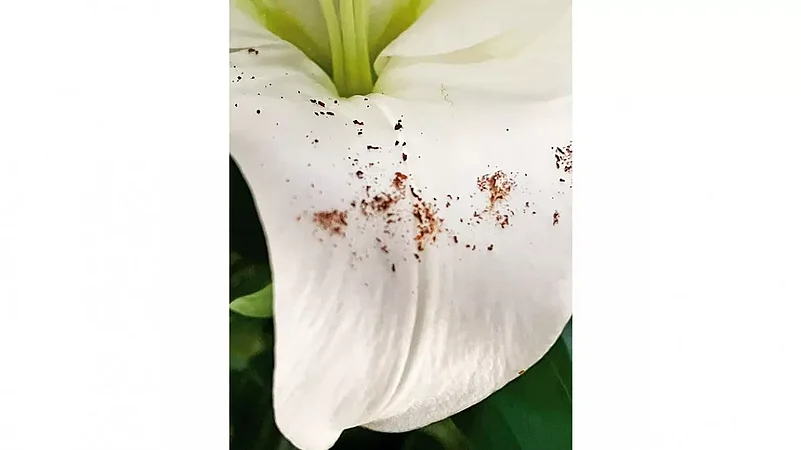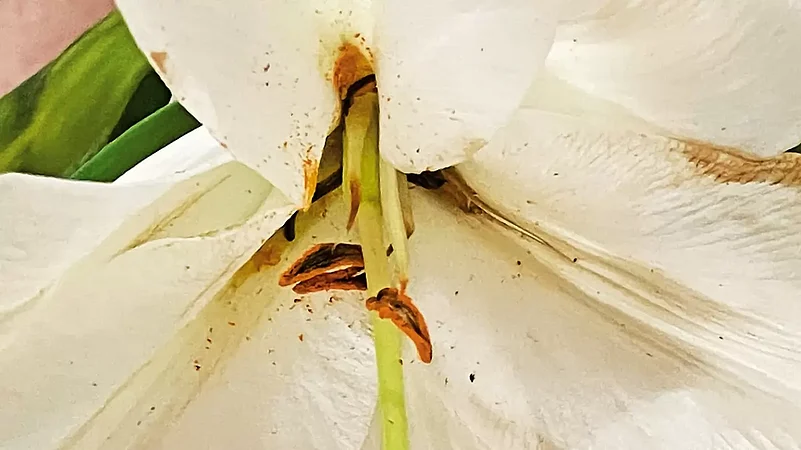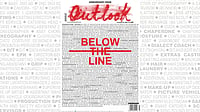“beauty is not a ‘thing’ which can be experienced in the present,
but is that which is felt in different temporalities”.
—Dr Mónica Moreno Figueroa and Rebecca Coleman
Why must a flower be beautiful only when it is in bloom? The remnants of the flower—wrinkled petals, spots—are a counter to hegemonic, oppressive ideas of beauty and gendered ideas about ageing. Why must being beautiful be displaced either to a past or is deferred to a future?
I have often thought about the ephemerality of the beauty myth that imposes the culture of lookism upon women. It upholds the institutional power of patriarchy that puts imposssible standards on women.
Ageing is evolutionary and anything that sheds and transforms bears within itself the state of metamorphosis, a feeling of empowerment.






Artists and writers have often used the flower as a symbol of female sexuality. As an artist who is also a woman, I have used the lily, often imbued with the symbolism of fertility, rebirth and innocence, to counter the hegemony of the male gaze upon women’s bodies. In the decomposition of the flower, there is a fragility that is vulnerable, surreal and an assertion of the truths that decay and death are imminent. In the temporality of the stages, there is an empowered sense of self and that itself is beauty, a version not captive to the idea of beauty imposed by capitalism that only seeks to profit, making women vulnerable to the repressive idea of youth as beauty, a fake premise because, in the end, death stares at all of us.
The celebration of the flower’s ageing is liberating. It is the feeling of freedom from all things ‘forever.’
(This appeared in the print edition as "Damn-age")




















